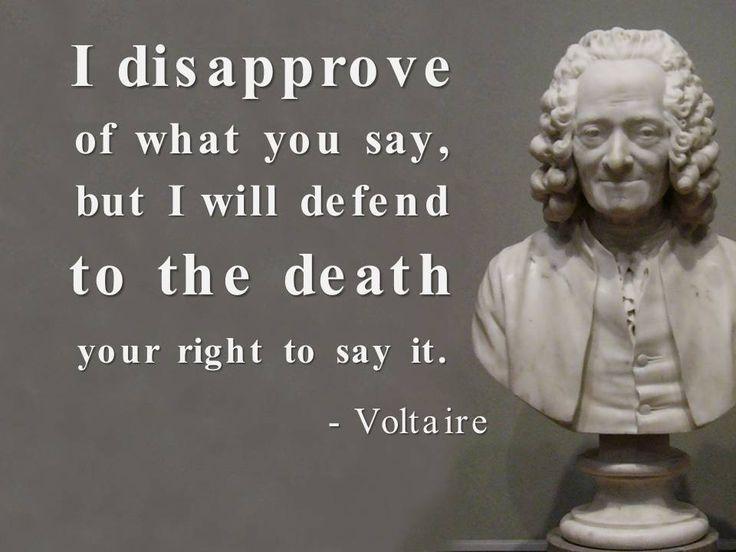
When does an opinion become an insult?
The fluent demarcation line between opinions and insults
Freedom of speech has long been debated as to what it means, and especially nowadays when the platform to use our voice is so large thanks to our ever growing presence online. Never before have we had so much accessibility to voice our opinions from the ability to write comments, blog posts, or use visual images to express our views.
What is the difference between opinions and insults?
You can find a debate online about almost every topic imaginable, however here we’ll discuss the real debate that’s on our hands. Are our (negative) opinions actually insults? Do we need guidelines as to what is allowed or do we need to change our own perceptions of what we deem as insulting?
To make this clearer, let’s first take a look by what we mean with the terms ‘opinion’ and ‘insult’. Simply put, an opinion is stating your thoughts about something. It is a personal and subjective statement and it does not have to be based on any facts or evidence, although of course that does help to strengthen it. It can be positive, negative or neutral, but it is based purely on your own subjective views.
Insults, meanwhile are usually intended to cause offense or to degrade someone or something. It is an insult when it is a disrespectful or an abusive remark and usually has very little objectivity. You can always make a negative opinion in a constructive way if you wish to show your disapproval, but insults are there to cause particular offense.
Why don’t we agree on language?
Although it seems to be quite a simple difference, the reality is not so simple. Mainly, due to the fact that what someone sees as an insult may not necessarily be seen as one by somebody else. We must not forget that language is arbitrary - meaning that we agree on what the words mean. If we were to start calling the grass blue, then it would be blue for us. This can be also be done on ‘neutral’ words and we can influence perception quite easily by giving a different meaning to a certain word.
We must not forget that language is arbitrary
To look into this further, we must remember that in any speech types, misunderstandings are very common. This occurs not only between speakers of different languages but also those within the same language. We have absolutely no guarantee that people will interpret the same words in the same way. This is where we must see the difference between denotation (the dictionary definition of a word) and the connotation (associations/meanings connected to this word). What is negative to someone, does not necessarily mean it will be to someone else and it’s all a matter of your own perception. We all know people who can be very easily offended, especially if they hear any kind of negative remark but does this mean it is an insult? Simply put, no. Opinions or remarks are not always positive, but that does not mean they are insults. As we have seen before, an insult is something that is directed towards someone to intentionally harm them, whereas an opinion is not.
What about controversial views?
The problem we have nowadays is that many people are very sensitive to negative comments and not only feel insulted but also fuel more commotion. Many times, negative comments have constructive criticism behind them yet the person still feels personally attacked. However, wholesome and constructive opinions are expressed with a reason and thorough process of thought, so there is a very distinct difference.
Currently, there is a very heated debate now about what is defined as an opinion or just inciting hatred, not only online but also in the public sphere. In the UK, there is presently a large debate about British universities banning controversial speakers. However, as said before - what is controversial to some may not be so to others and it is the students in Student Unions which are actively campaigning against allowing speakers in for fear of some people being offended. They state that universities should be a ‘safe zone’, meaning that people should be ‘protected’ from extreme views or controversial opinions. Yet how this prepares people to live in the real world is hard to understand. Instead of actively banning speakers to share their views, the students should challenge them if they disagree and not just be insulted if the views differ from their own.
They state that universities should be a ‘safe zone’, meaning that people should be ‘protected’ from extreme views or controversial opinions
Opinions matter
The point to remember here is that platforms for expressing our views do exist and will always exist. We are all welcome to share our own views but we must understand that not all opinions are insults. Nevertheless those who do attack others or incite hatred in others should not be accepted and with that, maybe a new form of internet policing will be born. Debates are there for people to express their thoughts and views and we must keep in mind that not everyone will think the same way. However, insults and hateful comments have no place whether in real life or online and can never be camouflaged as an opinion. That’s the real difference.
We are all welcome to share our own views but we must understand that not all opinions are insults

